#colonisation kenya
Explore tagged Tumblr posts
Text
The Kenya Pioneers :: Errol Trzebinski
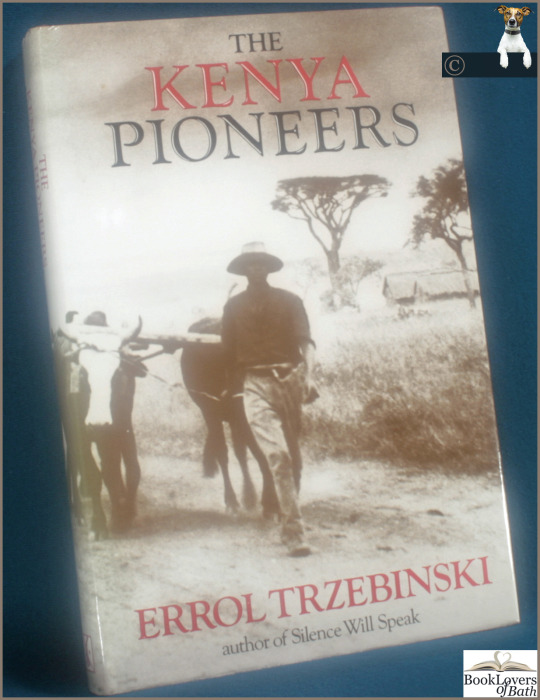
View On WordPress
#0-4347-9502-x#1909 roosevelt safari#african history#african land settlement#bibi kiboko#books by errol trzebinski#bror blixen#chania falls thika#colonisation kenya#east africa protectorate#first edition books#frontier pioneers#german east african campaign#history british kenya#history kenya#history mombasa#indian coolies#karen blixen#kenyan history#laibon lenana#mbagathi#meinertzhagen intelligence team#pioneer mary#ruwu bridge#stanley hotel#uganda railway construction#ugandan history
1 note
·
View note
Text
more for your consideration:
the phrase "The Great Lakes" now refers to the African great lakes in the East African Rift Valley (which include Lake Victoria, Lake Tanganyika, Lake Malawi, Lake Albert, Lake Turkana...)
the "Plegde of Allegiance" now refers to the Pledge of Allegiance to the flag of the Philippines
the "dollar" with no additional clarification refers to the currency of Brunei
We've had enough of the English-speaking internet defaulting to USAmerican terms that we are all forced to learn against our will. Here are the new default settings:
"Southern" no longer means Texas. It now refers to the Philippine island of Mindanao.
"The Midwest" is now Harare, Zimbabwe.
The default legal system is now that of the devolved administration of Scotland.
"College" is an educational institution for 13 to 18 year olds, as in some parts of New Zealand.
The "president" is that of Guyana, currently Irfaan Ali.
If you use these terms to refer to something in the USA then you have to specify or else we won't know what you're talking about and you'll sound like an idiot. Thanks!
#home and neighbouring lands#the great lakes one is actually something i feel very strongly about ok#bc the East African Rift Valley lakes are fucking INCREDIBLE#nobody asked but#those three lakes contain more water collectively than all the North American great lakes#Lake Victoria (great lake but terrible names thanks British colonisers) is the second largest freshwater lake in the world and is split#between Tanzania Kenya and Uganda#and is the source of the longest bit of the Nile? idk I'm not an expert it's complicated#Lake Tanganyika (better name) has a wild variety of crustaceans#Lake Turkana is the world's largest alkaline lake#and where several hominid fossils were found#Lake Malawi (which I grew up calling Lake Nyasa) is home to more species of fish than any lake in the world???#I didn't know that one every day is a learning day#Lake Natron (which is not on Wikipedia's list of East African Rift Valley lakes but is Very Definitely in the E African Rift Valley...#... and does show up on some lists but like I'm not an expert)#is RED and the only area in E Africa where flamingoes breed#also just to further my point re colonialism#in the list of Great Lakes: we have a Lake Victoria Albert and Edward#& several more that were originally named after high ranking Westerners#eg Lake Turkana was named when the Europeans arrived after an Austrian Prince and got renamed Lake Turkana after independence#anyway yes this may have been a ruse to talk about the East African Great Lakes#i ramble in the tags
10K notes
·
View notes
Text
AFRICAN LEADERS, STOP SELLING OUR COUNTRIES
In this video, 23-year-old rapper and Pan-Africanist based in Kenya @realsensicalsense ranted about many African leaders upholding the neo-colonial system.
For centuries, the world’s industrial powers have treated Africa as an open market for cheap raw materials to fuel their economies. At the end of the European slave trade and throughout the colonial period, Europeans forced Africans into a global economy that disadvantaged Africa and other colonised regions of the world. Today, most African countries are nominally free. Yet, African states still find themselves beholden to unfair trade deals, widening the gap between the industrialised Global North and the extractivist economies of the Global South. It’s a race to the bottom at the expense of our lands and people.
Every country is looking out for its interests. In some cases, two countries can strike a mutually beneficial deal. New collaborations between Russia and African countries like Burkina Faso, Mali and Niger are allowing these Sahelian states to move away from France’s stranglehold and develop new industries.
BROTHER SPEAKING FACTS ..these so-called leaders are nothing but corrupt mother fvckers
47 notes
·
View notes
Photo
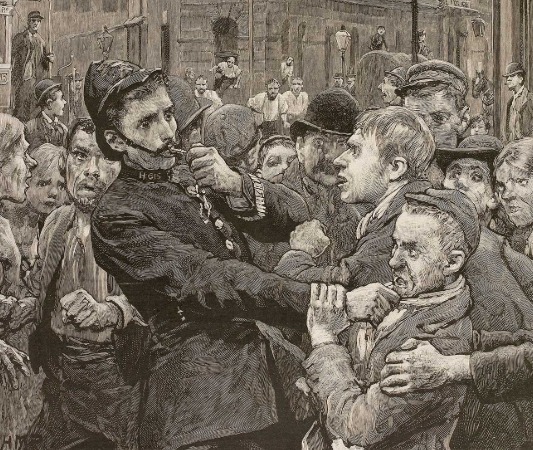
On this day, 28 June 1830, Joseph Grantham became the first officer of the new London Metropolitan Police to be killed in the line of duty, in an incident which was later deemed to be "justifiable homicide". Grantham tried to stop a fight between two drunk men in Somers Town, North London, and was then kicked to death. At the subsequent inquest, the jury determined that his killing was "justifiable" and that Grantham himself was responsible due to "over exertion in the discharge of his duty". The Met were the world's first modern, professional police force, created in 1829 and based in part on the experiences of the Royal Irish Constabulary, responsible for enforcing British colonial rule in Ireland. They were specifically designed to control the growing numbers of working class people, and break up strikes and demonstrations ideally without massacring people – as occurred in Peterloo 10 years prior, and which caused protests to escalate. As such, they were extremely unpopular, especially in working class areas of London, where a popular game for children was to hide in doorways until an officer walked past, at which point they would throw a brick or stone at him. Other police forces began to be created elsewhere, often by colonial authorities. For example in Kenya, the first police force was created by the Imperial British East Africa Company to protect their stores, and other police forces were established across the British empire. After colonised countries gained independence, in most cases police forces remained relatively intact. In the United States, the first forces in the North were set up to control working class crowds. In the South, many forces emerged from slave patrols, which were responsible for pursuing enslaved people who escaped, and deterring resistance by doling out brutal violence and terror. If you appreciate our historical work, please consider supporting us and accessing exclusive content here: https://patreon.com/workingclasshistory https://www.facebook.com/photo.php?fbid=651804640326088&set=a.602588028581083&type=3
214 notes
·
View notes
Text
also sorry it's very funny to me to come at me with that specific critique (I mean, I say specific. It was pretty all over the place. but I mean the It's Antisemitic To Say Israel Shouldn't Exist) because like
this wasn't even one of the posts where I say Israel doesn't have the right to exist
Israel doesn't have the right to exist btw. several reasons but let's go with:
No state has an inherent right to exist
Supremacist states and theocracies are a bad idea whoever's doing them. Bad when it's ethnonationalism bad, when it's theocracy, bad when it's Christian, Muslim, Hindu, Buddhist, Jewish or anything else. Monoreligious, monocultural or monoethnic states, or states with an explicit racial, cultural or religious hierarchy under law are pretty obviously and inherently unjust. I am pretty continuously put tf out that I live in a Christian country also.
When it comes to a conflict on who has a right to the land, pretty sure 'we have already been living here for generations' trumps 'an antisemitic British PM says we can't have Kenya but we can have this bit of land as long as we encourage Jewish people to vacate Europe'.
Everybody involved in the formation of Israel understood that the price of colonising Palestine was going to be constant unrest from colonised Palestinians and you actually cannot pretend it's a surprise when people you've been consistently performing violence on for 80 years don't like it very much, so honestly lads even if Israel had a right to exist it wouldn't have a right to get upset that sometimes the people whose land they stole don't like them very much. especially when it keeps shooting them in the kneecaps, blowing up their homes and kidnapping their children to torture prison.
7 notes
·
View notes
Text
Settler colonialism and the birth of global capitalism
JJ: You argue against the dominant academic interpretation of settler colonialism, one that emphasizes that settler colonialism is premised on the elimination of the native societies. How does this shift help us to understand contemporary settler colonialism?
SE: The characteristic often used to separate off colonialism and settler colonialism is this question of elimination. The argument goes that because settlers settle, because they stay, they have to eliminate the populations that were already there, and so an eliminatory logic plays out. That elimination can take lots of forms – genocide, expulsion, forced integration – all of which attempt to disappear the collective political claim that Indigenous populations have over the land, so that the settler society can replace that collective claim with its own.
There is lots of ‘race science’ in the nineteenth century that calculates the blood quotas of Indigenous populations, analysing at which point the Indigenous stops being Indigenous – and therefore loses their claim to the land – because it’s been mixed in with sufficient white blood.
So the definition becomes that settler colonialism is about elimination, while franchise colonialism is about exploitation.
I think the problem with that is that it generalizes from some of the most striking examples, let’s say, of settler colonialism: largely North America and Oceania. They’re important of course. They’re very big places. There are a lot of Indigenous people there, and huge genocides take place to make those settler colonies a reality.
The problem is that this hides much wider processes of settler colonisation and resistance against it, which is the crucial political question. If you look at South America and Africa, the settler colonies in those continents are often based on challenging the collective Indigenous claim on the land, but also on transforming Indigenous populations into a massive, cheap hyper-exploitable workforce. Think of South Africa, Mexico, Peru, Algeria, Kenya, lots of others, in which minority settler populations put majority Indigenous populations to work in mines, agriculture, some forms of industry. So exploitation is central to the imposition and the reproduction of settler colonialism in many places. And elimination is also much more general in colonial history. Slavery is massively eliminatory of course, as are the organised famines on the Indian subcontinent.
That’s also important because it makes settler colonialism suddenly look much less stable. All the settler colonies in Africa were defeated by massive, exploited populations that rebelled and revolted. You get a very different history of settler colonialism if you consider modern Latin America, where massive Indigenous labour and social movements continue to play an absolutely central role in struggles for the redefinition and transformation of those societies in a very different way than in the Anglo-Saxon settler colonies. Settler colonialism is actually much less stable than it appears to be in analyses that only consider Canada, the US, Australia, and New Zealand. There’s a danger in developing perfect forms and then losing sight of processes of social struggle that happen both between settlers and Indigenous populations, as well as within those groups. That struggle leads to lots of variation and transformation in colonial histories.
Early settlers in the Americas enslaved and exploited Indigenous labour, something that they later moved away from. Exploitation is crucial in its early stages for the survival of the settlement. When the French conquered the Barbary Coast in North Africa, it’s not clear that their original idea was the development of a settler colony. However, they are met with Indigenous resistance which forces the Empire inland, in order to try to break the resistance. Then the question of how to control those lands arises, so finding European populations, not only French, but also Spanish, Italian, and others, becomes central to developing control. They not only bring external populations in, but also start changing the legal status of the indigenous Jewish populations, who are made European by legal fiat in order to shift power relations between Indigenous and settler societies.
The danger of limiting our understanding of settler colonialism to ideal types is that it misses both the dynamism of social relations in the colonies and the variety of struggles they engender, both of which shape the different colonial forms that develop.
3 notes
·
View notes
Text
so one of the big people jobs that I do is credit risk analysis (basically I do research on specific commodities and if they could be worth investing in if exported out of and into specific countries) which means I end up on a lot of government websites trying to figure out trade logistics. and it is so funny to me when governments make it seem like they’re best pals with other governments (countries) like they really be having little clauses in their agreements that say “and this agreement will also help maintain the power of ✨friendship✨ which has been on going for 50 years (don’t worry about the colonisation we’re hiding that)”
anyway I’m not even joking this is from the UK government website under the Kenya-UK agreement

3 notes
·
View notes
Text
Caleb Mwangi was beaten so severely at his school in Kenya after he took extra food at breakfast that he was put into an induced coma and spent 11 days in an intensive care unit.
"When I got there, he couldn't leave his bed. He couldn't speak," his father Fred Mwangi told the BBC.
This happened nearly two years ago when Caleb was 13 years old. Sitting now between his mother and father on the sofa in their home in Mombasa, a city on Kenya's coast, he says he tends to zone out from time to time.
The teenager is filled with rage that sometimes makes him punch the wall. The effects, he says, of the trauma caused by the near-death experience.
Mr Mwangi gets his son to stand and pull up his white vest to reveal a thick, angry scar covering almost the width and length of his back.
He says the wounds were so deep the surgeon had to remove large pieces of skin from his thighs to use as skin grafts.
"This is him in hospital," says his mother Agnes Mutiri, showing pictures of Caleb on her phone, too graphic to publish. Lying face down on the bed, lacerations cover his legs, back and arms, and even his face. There were almost a hundred in total.
"His whole body was like this."
Corporal punishment in schools has a long history in Kenya, dating back to the era when missionaries and colonisers relied on it to assert their authority.
In 2001, the Kenyan government banned the practice in schools, but it has been harder to change people's attitudes.
Figures from the latest Violence Against Children report, a national household survey in 2019, revealed that more than half of 18 to 24-year-olds in Kenya agreed it was necessary for teachers to use corporal punishment.
BBC Africa Eye has uncovered a worrying increase in the number of severe cases being reported.
Caleb says in his case it was Nancy Gachewa, the director of Gremon Education Centre - a school in the town of Bamburi near Mombasa - who first beat him and then ordered other students to continue the punishment. Ms Gachewa denies this, and says she was not at the school when it happened.
"I was so hungry, I took five chapatis and ate them with tea," Caleb says.
Ms Gachewa and an older student, Idd Salim, were arrested and charged with assault and causing grievous bodily harm. Salim was sentenced to four years in prison last year and, in a plea bargain, he has testified against Ms Gachewa in court. The case against her continues.
While Caleb's case is horrific, it is far from unique. An employee at the Teachers Service Commission (TSC), an independent organisation that manages all aspects of the teaching profession in Kenya, spoke to BBC Africa Eye on condition of anonymity.
They said that in the last three years, reports of the most severe school beatings have more than quadrupled from seven to 29. Most incidents are never reported.
"It is becoming a crisis and… we feel it is going out of hand now. Cases of children being injured and maimed. Some of these cases have resulted into very severe consequences, even death," they said.
The source said that cases of school beatings reported to the TSC at county level often never go any further, adding that incidents were "killed" and "never see the light of day".
"So many times, by the time the case reaches us, so much evidence has been corrupted. Sometimes we cannot even get a hold of the witnesses."
BBC Africa Eye contacted the TSC to respond to these allegations, but it did not reply.
The thought that a student could die at the hands of education professionals who are supposed to protect them is unimaginable for most people, but in the last five years, more than 20 deaths linked to school beatings have been reported in the media.
Fifteen-year-old Ebbie Noelle Samuels is believed to be one of them.
Ebbie was a boarder at Gatanga CCM Secondary school in Murang'a county, around 60km (37 miles) north-east of the capital, Nairobi.
On 9 March 2019 her mother, Martha Wanjiro Samuels, was called by the school to say her daughter was unwell in hospital.
When she arrived there, Ebbie was already dead.
The school said that she had died in her sleep, but witnesses say she was beaten by the deputy principal because of the way she wore her hair.
"The autopsy report revealed that she had severe head injury, blunt force trauma. So, somebody hit her to cause that kind of an injury to her, leading to her death," said Mrs Samuels.
She campaigned for four years to have her daughter's death investigated.
Last January, Elizabeth Wairimu Gatimu, the former deputy principal of Ebbie's school, was arrested for murder. She denies the charges against her.
"I will do everything that I have to do as long as I'm alive to ensure justice is served for my child," said Mrs Samuels, who is still waiting to hear the outcome of the case.
"I told myself: 'I will not be silenced. I will not keep quiet. I will not give up fighting.' Maybe the day I give up is the day that I sleep like my daughter. But as long as I breathe, I will not give up."
BBC Africa Eye requested an interview with the Kenyan Ministry of Education, but nobody was willing to speak.
One organisation which is pushing for change is Beacon Teachers Africa. Launched in Kenya four years ago by the non-governmental group Plan International, together with the TSC, its aim is to give teachers the opportunity to protect children in schools and their communities.
It now has a network of 50,000 teachers across 47 countries in Africa.
Robert Omwa is one of 3,000 Beacon teachers in Kenya. As well as educating children about their rights, he also holds workshops to train teachers how to deliver discipline without using corporal punishment.
"Initially I was sceptical about it. I thought this is Western ideology, an African child has to be beaten. But when I tried it, I felt relieved as a teacher. I felt lighter. I felt the children gravitating more towards me," he said.
Back in Mombasa, Caleb and his family are waiting to hear the fate of his school director. Ms Gachewa has pleaded not guilty.
The 15-year-old still finds it hard to process what happened to him.
"For me to get justice, I want this woman to be jailed."
8 notes
·
View notes
Text
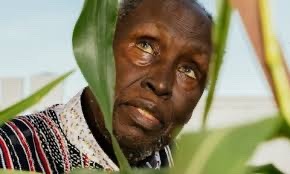
There’s no such thing as a good colonialist.
Ngũgĩ wa Thiong’o: three days with a giant of African literature. The Kenyan novelist’s life and work has intersected with many of the biggest events of the past century. At 85, he reflects on his long, uncompromising life in writing. Ngũgĩ is a giant of African writing, and to a Kenyan writer like me he looms especially large. Alongside writers such as Chinua Achebe and Wole Soyinka, he was part of a literary scene that flourished in the 1950s and 60s, during the last years of colonialism on the continent. If Achebe was the prime mover who captured the deep feeling of displacement that colonisation had wreaked, and Soyinka the witty, guileful intellectual who tried to make sense of the collision between African tradition and western ideas of freedom, then Ngũgĩ was the unabashed militant. His writing was direct and cutting, his books a weapon – first against the colonial state, and later against the failures and corruption of Kenya’s post-independence ruling elite.
Ngũgĩ wa Thiong'o interview. at his home in California November 2022. By Carey Baraka. The Guardian Newspaper #kenya #literary #giant
4 notes
·
View notes
Text
ANOTHER HERO EXECUTED BY THE BRITISH
Kenyan Freedom fighter Dedan Kimathi took his final bow 67 years ago.
The leader of the Mau Mau rebellion, he was a radical force against British imperialism and ultimately sacrificed his life fighting for Kenya’s independence.
The coloniser killed him by hanging, and buried his body in an unknown location. Almost seven decades later, his grave’s whereabouts remain a mystery. It’s rumoured the British buried him at Kamiti Maximum Security Prison, but efforts to have the body exhumed have had no luck.
African Stream’s Brenda Mwai brings us the lowdown on why
17 notes
·
View notes
Note
You’re so fucking stupid. That chant is racist and there’s no doubt about it.

is the president of kenya racist and stupid too? 🤔im seeing people just pick and choose tbh. were the french players racist as well when they made fun of asians? what about the german players when they made fun of "gauchos"? was mourinho racist when he said african players are scattered all over the world?
you guys loooooveee to point the finger and just put a label to anything that offends you or triggers you. im also betting you are european, which is ironic in all of this lol. do you want me label u as a coloniser if you are?
0 notes
Text
Not so spiteful, but not so grateful
When it comes to fighting colonialism, I’m not entirely against Westerners. I actually like Italy and Russia, but I do think colonialism doesn’t help countries like the Philippines. In the sense that we become too sympathetic to the colonisers, not to those that historically never colonised this country. Even if China has its faults, is America any better?
Is America any better with its aggressiveness towards indigenous people like the Navajo and the Choctaw? Is America any better when black people are treated callously despite attempts at stamping out anti-black racism? Even if China is racist, I don’t think America is any better either. But it’s easier to side with the coloniser, if America’s seen as a cool hero.
Spain’s not any better either, in fact it has contributed to the persistent marginalisation of indigenous American languages like Nahuatl and Maya in Mexico and Guatemala. With the exception of Paraguay, many of the Latin American countries don’t use American languages as the national languages though save for some East African countries, it’s no different in West and Central Africa.
You might say that the American countries use lots of languages, but both the Philippines and Kenya use non-western languages as the national languages in addition to English. Such is the ugly legacy of colonialism, especially if the native people are either assimilated into a culturally and biologically westernised community or are marginalised and shunted off.
I admit that countries like Cameroon and the Philippines benefit more from their natural neighbours, if the goal’s to minimise the legacy of colonialism. China is the Philippines’s natural neighbour, likewise the entire African continent’s natural neighbour is the Arabian peninsula. It’s even evident in the cuisine and fashion sense, Ugandan kanzus and Senegalese kaftans recall Middle Eastern thobes.
Allying more with the natural neighbours would be necessary to minimise, if not entirely undo, the legacy of western colonisation. A way to rebuild the ties that were interrupted by westernisation, I feel by reconnecting more with a country’s natural neighbours we can rebuild those relationships in the near future. It could happen in my lifetime.
But I still think we shouldn’t put western colonisers on a pedestal, whilst shunning or insulting a country’s neighbours.
1 note
·
View note
Text
[ID 1: a twitter thread by Mohammed Elnaiem @/m_elnaiem, which read:
"There's something hard for us, children of the colonised, to articulate because the world is upside down. Europe and its descendants, can't differentiate between principle and episode. This is why Germany (and much of Europe) is doomed to be genocidal. Here is what I mean. 🧵
The Holocaust was the culmination of European violence. On principle, its components: racial supremacy, concentration, biopolitics - happened before, (the Nama and Herero genocide), and elements of it after (Kenya). Europe only feels guilt about the episode, not the principle.
And so Europe believes that its crime was not the principle of genocide as such, but the crime against Jews. It seeks penance for the episode but reconciles itself with the principle of genocide which has been ongoing for centuries, and which was perfected in colonial occupations
And so this is why we see the absurdities in Germany. Germans do not believe that holocausts were the problem, or else they would learn about the Nama and Herero genocide in school. They believe that the holocaust was the problem, and that Israel can give them penance.
The fascist batons, the rounding up of dissidents the kidnapping, the banning of BDS, the defence of Israel in the ICJ, all of this is fine, because it is not the principle of fascism which it condemns, only the episode. It mistakes the episode for the principal.
And this is how Europe, which refuses to actually confront its violence, will forever be doomed to repeat it. I am Black. I am also a Muslim. There is no longer a Jewish question in Europe (and thank God Europe can learn) but there is a Muslim question.
Every single stereotype, that Palestinians are brutes, human animals, rapists, that they are misogynists, their children terrorists in waiting, women accomplices. These tropes are not wrong, unless directed at Jews, because the episode, and not the principle is condemned.
They can't understand a simple premise which we must try to teach them in vain. The Holocaust, Leopolds Congo, the Malaya emergency, and today, the genocide in Gaza -- all of it must be condemned. What the "jew" was to your grandparents is what the Arab is to you.
And all of this is true, at the same time as the fact that despite all of these attempts at self consolation, Europe is still not safe for Jewish people, because antisemitism is still rampant.
This might not be easy to hear, but this is the absurdity which we confront on our television sets, in silence everyday. You cannot learn. You can't.
When you say let them drown in the English Channel, or that there is no difference between Palestinian citizens and Hamas. When you can see our relatives fleeing war and treat them like flies and ants; that is the Hitler inside of you. Confront the principle, not the episode."]
[ID 2: a photo of the cover of "Discourse on Colonialism" by Aimé Césaire]
[ID 3: a black and white photo of Aimé Césaire, wearing a suit and tie /End IDs]
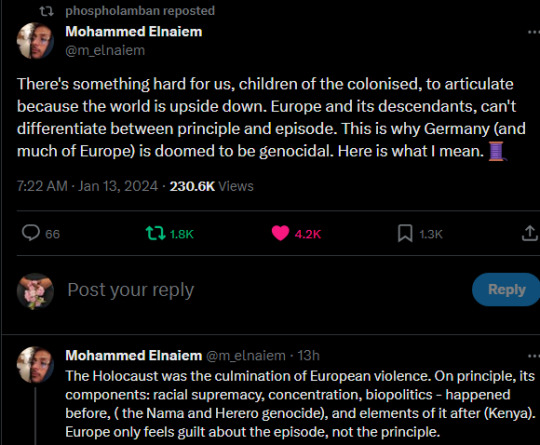
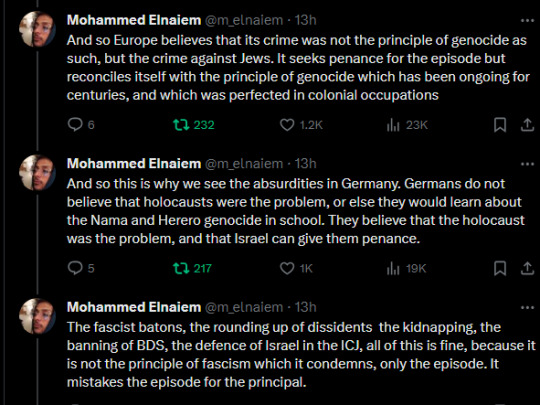

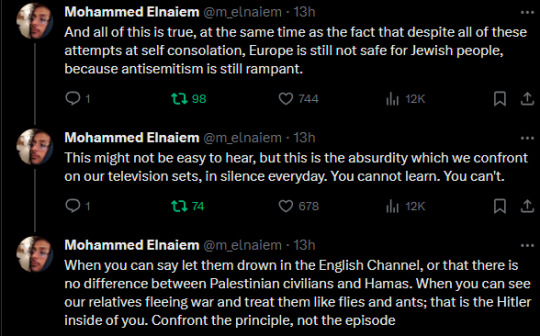
11K notes
·
View notes
Note
re: globalisation vs colonisation: english is also spreading more and more throughout continental europe which isn't colonisation but very much globalisation (global south is different ofc, and arguments for cultural hegemony are Definitely there, in the global north as well as south)
honestly I'm so fucking pissed off I'm not even gonna answer, go fuck yourself
#I'm literally talking about the HISTORY of the english language#Like the England has colonised like 80% of the world historically#Don't even start with me#I'm speaking about Ireland cause I'm actually fucking irish and it's immediate in my cultural background#How long do u think Ireland has been a free country??????#Do u think they globalised us for 800 years?????#No they fucking killed us off and colonised us#Now what about the us? Huh? What happened with native Americans? Globalisation????????#Slave trades? Was that globalisation???#Australia#New Zealand#India#Scotland#Kenya#Afghanistan#Canada#Malaysia#Pakistan#South Africa#AND THE LIST GOES FUCKING ON#Like literally go fuck yourself#im literally not talking not talking about english as a fucking business language#But even then why the fuck do u think it's the business language#ask#Jesus fucking christ this
4 notes
·
View notes
Text
L'amour au temps des éléphants
Dans cette formidable fresque romanesque, Ariane Bois nous entraine aux débuts du XXe siècle, des États-Unis en France puis en Afrique sur les pas d’un trio que les circonstances vont rassembler pour un bel hymne à l’amour et à la liberté!
En deux mots Du Tennessee, où ils assistent à la mise à mort d’une éléphante, en passant par le Paris de la Grande Guerre et jusqu’au Kenya, trois destins vont se retrouver liés, celui d’Arabella l’insoumise, de Jeremy le reporter et de William Vernon, obligé de fuir le Ku-Klux-Klan. Ma note ★★★★ (j’ai adoré) Ma chronique Arabella, Jeremy, William, une épopée Dans cette formidable fresque…

View On WordPress
#Afrique#Amour#années folles#éléphant#cirque#Colonisation#Etats-Unis#exécution#fait divers#Famille#France#infirmière#jazz#Journalisme#Kenya#ku klux klan#origine sociale#Première Guerre mondiale#protection des animaux#racisme#Rencontre#souffrance#Voyage#zoo
1 note
·
View note
Photo
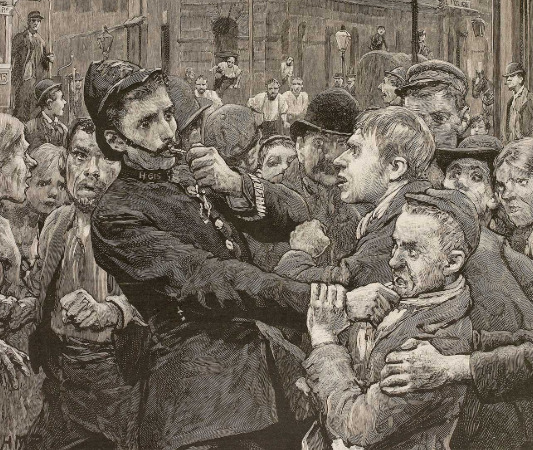
On this day, 28 June 1830, Joseph Grantham became the first officer of the new London Metropolitan Police to be killed in the line of duty, in an incident which was later deemed to be "justifiable homicide". Grantham tried to stop a fight between two drunk men in Somers Town, North London, and was then kicked to death. At the subsequent inquest, the jury determined that his killing was "justifiable" and that Grantham himself was responsible due to "over exertion in the discharge of his duty". The Met were the world's first modern, professional police force, created in 1829 and based in part on the experiences of the Royal Irish Constabulary, responsible for enforcing British colonial rule in Ireland. They were specifically designed to control the growing numbers of working class people, and break up strikes and demonstrations ideally without massacring people – as occurred in Peterloo 10 years prior, and which caused protests to escalate. As such, they were extremely unpopular, especially in working class areas of London, where a popular game for children was to hide in doorways until an officer walked past, at which point they would throw a brick or stone at him. Other police forces began to be created elsewhere, often by colonial authorities. For example in Kenya, the first police force was created by the Imperial British East Africa Company to protect their stores, and other police forces were established across the British empire. After colonised countries gained independence, in most cases police forces remained relatively intact. In the United States, the first forces in the North were set up to control working class crowds. In the South, many forces emerged from slave patrols, which were responsible for pursuing enslaved people who escaped, and deterring resistance by doling out brutal violence and terror. Learn more about problems with the institution of the police in this book: https://shop.workingclasshistory.com/products/the-end-of-policing-alex-s-vitale https://www.facebook.com/workingclasshistory/photos/a.296224173896073/2021773698007770/?type=3
205 notes
·
View notes